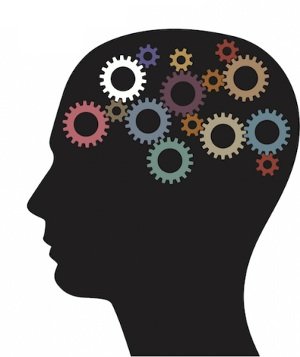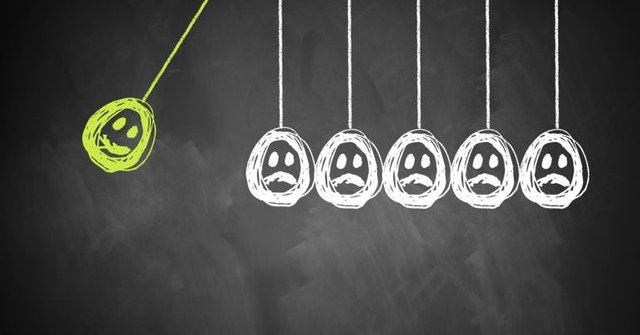Optimism, Pessimism, and Hope: Perspectives on Reality
Optimism, Pessimism, and Hope: Perspectives on Reality
Optimism has oftentimes been termed as looking at life through rose-colored glasses, while pessimism seems to be all gloom and doom. But does scientific data suggest that the optimist may be happier than the pessimist as they wander through life with those hippie shades, whether life is kind to them or not? The results may surprise you. The evidence suggests that the explanatory style one uses, or the way one explains life’s mysterious events, and one’s disposition, may have powerful effects on the overall well-being of a person.
Historical Context
Psychologists used to believe that optimism was a psychological deficit, in that it showed weakness and an inability to adapt to the harshness of life. However, by the 1970's, there was a wealth of cognitive evidence culminating in the Polyanna Principle, which suggested that people's thinking processes tend to be optimistic. They were more likely to recall positive words and things than negative words and things. With the exception of those depressed or anxious, they spoke more optimistically and it even became argued that optimism was a naturally selected characteristic for our species.
Definitions
One camp of positive psychologists define optimism as dispositional, as having an expectation that more positive things happen than bad, and will continue to do so in the future. Pessimists, however, expect the worst, and may even respond to adversity by quitting, or giving up on their goals, while optimists may persevere. This camp contrasts against the optimistic explanatory style camp. Here, optimistic people explain negative events by attributing the causes of those events to something external, transient, and specific, while pessimists are more likely to explain negative events with internal factors, consistent hardships, and the abstract. As one might be able to surmise, one may lend its strengths to greater well-being, while the other may lead to frustration and worse outcomes.

Psychological Processes
Positive Illusions
It has been shown that people who view themselves in a positive light, even if they're flat-out wrong about who they are, tend to be healthier and have greater well-being as indexed by self-reports, as well as objective indicators such as immune function, blood pressure, disease progression, and mortality. They see the totality of themselves din an enhanced light, have an unrealistic sense of personal control and an unfounded belief that they can make things turn out for the better for themselves. They also believe that the future will be better than facts suggest, as opposed to the belief that there will be chaos in their futures.
Defense Mechanisms
Denial and repression are two of the most widely used defense mechanisms that allow for these optimistic points of view. Denial being the failure to acknowledge the existence or meaning of a threat or event, while repression involves not acknowledging unacceptable behavior exercised by the optimist. Of course, these can and do occur in pessimists as well, but pessimists tend to be far more grounded in a darker reality than optimists.
Selective attention and benign forgetting follow as defense mechanisms used by optimists. Filtering information through biases in order to prevent negative news, but only registering positive news, is how selective attention is defined. Benign forgetting is just that: forgetting that something bad ever even happened to you!
Hope
Hope is a construct closely related to both pessimism and optimism. It has been defined by Prof. Rick Snyder as involving two main parts: the ability to plan pathways to desired goals despite obstacles, and agency or motivation to use these pathways. The pursuit of hopeful goal-directed behavior is determined by the interaction of the degree to which the outcome is valued, the thoughts about possible pathways and expectations regarding those thoughts, and the thoughts about personal agency and how effective one can be in following these paths. These are thought to be dependent on thoughts about pathways to goals based on prior experience concerning correlation and causality, as well as thoughts about previous experience about the self as the source for these outcomes.
Neurobiological Factors
Perhaps unsurprising, the two areas of the brain that have been related to the development of hope and optimism have been shown to have irregularities in those that are depressed: the amydala and the rostral anterior cingulate cortex. The rostral anteriror cingulate cortex has been found to be related to trait optimism. However, there is not much research on brain areas related to the constructs discussed above.
Conclusions
Perhaps it is not all that surprising that people who look at the world through rose-colored glasses experience the world more positively, even if they're just fooling themselves, while even realism and pessimism have their negative effects on health. One can see correlations between hope and optimism, and so it is unsurprising that when people become depressed, they often take pessimistic outlooks on life and even succumb to hopelessness. Because optimism and hope correlate and even predict subjective physical and mental well-being, positive mood, immonological robustness, and even effective coping strategies, it should be clear that we should all try and be a little more optimistic. Even if we are fooling ourselves, just a little.



nothing is impossible in the world if you want from your heart.
thank you sir for shearing a nice content.
The word impossible just say by it self that I am possible. As our teacher told us in matric hich i remember till now.
Hello @aceaeterna, thank you for sharing this creative work! We just stopped by to say that you've been upvoted by the @creativecrypto magazine. The Creative Crypto is all about art on the blockchain and learning from creatives like you. Looking forward to crossing paths again soon. Steem on!
You got a 31.32% upvote from @thebot courtesy of @aceaeterna!
Delegate us Steem Power & get 100% daily rewards share!
correct me if im wrong, but my impression was always that simple people will have an happier life and will be more optimistic
those who experience a lot (poverty, bruttallity of this world, death of other people, seeing warzones etc) may have trouble being happy with their life
because knowledge is a blessing and a curse